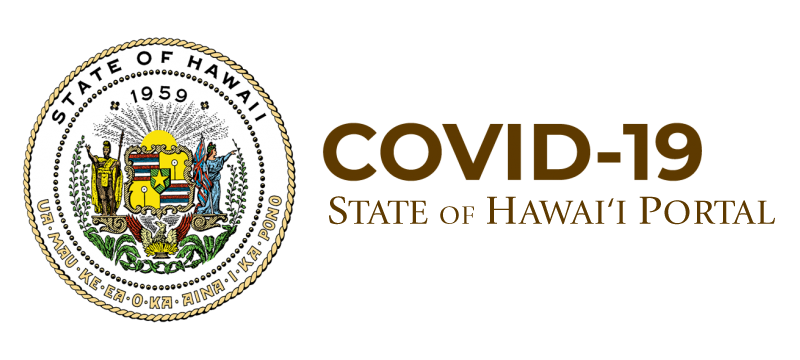
The scores of people suffering from long COVID are difficult to quantify and categorize. Therefore, long COVID is not used as often as case counts, hospitalizations and deaths to measure the impact and severity of the pandemic. But long COVID is very real and in many cases debilitating.
“We have had patients who cannot return to work. We have people from 2020 still struggling. It is quite disabling, and it is very real,” said Dr. Abby Pandula, a primary care physician with Kaiser Permanente in Hawai‘i.
The Centers for Disease Control and Prevention and the World Health Organization differ somewhat on their definition of long COVID but agree in general that long COVID involves a wide range of new, returning, or ongoing health problems that continue for months, sometimes years, after initial infection.
“It is a whole laundry list of conditions such as fatigue, shortness of breath, difficulty concentrating, brain fog, chest pain, and heart racing. It could also include anxiety, depression, trouble falling asleep, joint pains, muscle pains, loss of taste or smell, even menstrual irregularities, and many more,” Pandula said.
Like COVID itself, long COVID is relatively new. There is a lot we do not yet understand about long COVID. It appears anyone who is infected with COVID may experience long-term symptoms, but some people have a greater risk of long COVID than others.
“Studies are ongoing, but right now, it appears that people who have had a very severe illness with COVID are much more likely to get it, although even some with mild symptoms have reported long COVID symptoms. People who are not vaccinated are more likely to get it as well as people with underlying conditions like diabetes or obesity,” said Kaua‘i Medical Center pediatrician Dr. Bob Wotring, who is also chief of Community Pediatrics for Hawai‘i Pacific Health. “Initial data shows that up to a third of people who had a severe case of COVID infection that required hospitalization will present with long COVID symptoms that can last for months if not longer.”
Dr. Fritzie Igno, who works at the Post COVID Recovery and Care Clinic at The Queen’s Medical Center, said there is no one way, no magic bullet, to treat patients for long COVID. Igno said all patients are different and are treated for their specific symptoms.
“We listen to their complaints. We find out what they are experiencing and from there we come up with a treatment plan catered toward their specific situation. So, for brain fog we do brain exercises. For shortness of breath we do deep breathing exercises. If there is a need for pharmacological intervention, a visit with a specialist, we can do that too,” Igno said.
Igno said the sure way to avoid long COVID is to avoid infection, and says staying up to date on COVID-19 vaccines reduces the risk of long COVID.
“Get yourself vaccinated. It does not mean you will not have COVID, but vaccines can help prevent you from having the serious complications from COVID including long COVID,” Igno added.
“In general, our state is highly vaccinated,” Pandula said. “There is less severe long COVID (now) than we were seeing in the early part of 2021 and even 2020. So, I do believe the vaccines and the boosters are helping our patients,” Pandula said.
These doctors encourage anyone experiencing symptoms consistent with long COVID to seek help from their healthcare provider. They ask for patience and compassion for those dealing with long COVID.
“It is very important for people around these individuals to realize how debilitating this can be,” Wotring added.
Denby Fawcett: Why So Few People Are Getting The New Covid Shot
Experts are worried about the lack of interest as people are still suffering from the virus and long Covid. By Denby Fawcett Original article on Civil Beat, November 7, 2023 I keep a card in my [...]
Federal Public Health Emergency (PHE) for COVID-19 ends on May 11, 2023
HONOLULU, HI –The federal Public Health Emergency (PHE) for COVID-19, declared under Section 319 of the Public Health Service Act, will expire at the end of the day on May 11, 2023. As the PHE [...]
Seniors now eligible for additional COVID-19 bivalent booster dose, COVID vaccine recommendations simplified
HONOLULU, HI – The Hawai‘i Department of Health (DOH) supports the latest recommendations announced yesterday by the Centers for Disease Control and Prevention (CDC), allowing an additional dose of the bivalent booster against the virus [...]
Hawai‘i COVID-19 hospitalizations on the rise
HONOLULU, HI – The Hawai‘i Department of Health (DOH) reports a rise in the rate of COVID-19 hospitalizations. The number of total positive COVID-19 hospitalizations has increased over the past week (3/26 – 4/4) from [...]
Wastewater Samples Show Higher COVID Concentrations & New Subvariant
The Hawai‘i State Department of Health’s most recent Wastewater Surveillance Report documents two significant developments about COVID-19 in Hawai‛i. Higher concentrations of the virus that causes COVID-19 The arrival of the XBB.1.5 subvariant Higher concentrations [...]
Bivalent boosters for keiki as young as 6 months
Updated COVID-19 bivalent boosters are now available in all counties for keiki as young as six months of age. The U.S. Food and Drug Administration (FDA) amended the emergency use authorization for the bivalent boosters [...]
